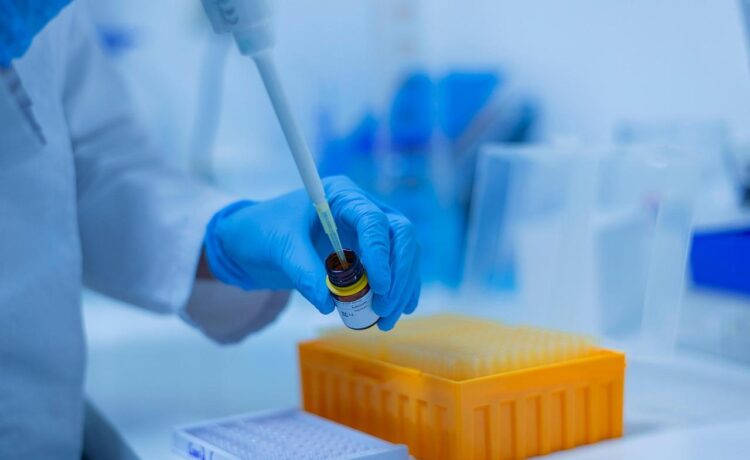The food industry is essential in providing nourishment to people worldwide. As food production and distribution become more complex, ensuring the safety and quality of food is more important than ever. Food testing services help protect public health and maintain the reputation of businesses in the industry.. This article explores the importance of food testing, the methods used, and its impact on businesses. As a trusted provider of food testing services, TestHub Laboratories is dedicated to raising awareness about this crucial process and its role in the food industry.
What Is Food Testing?
Food testing is the process of analyzing food samples to check for safety, quality, and composition. It is a key part of food safety systems, protecting consumers from foodborne illnesses and ensuring compliance with industry standards. Accredited laboratories use advanced techniques to detect hazards, contaminants, and any substances that could impact public health and business credibility.
Why Food Testing Is Important for Your Business
Ensuring Consumer Safety
Consumer safety is a top priority in the food industry. Foodborne illnesses and contamination can have serious health effects, erode public trust, and damage a company’s reputation. Food testing helps detect harmful substances like bacteria (e.g., Salmonella, E. coli), viruses, pesticides, heavy metals (e.g., lead, mercury), allergens, and other contaminants. Early detection allows businesses to take corrective measures and prevent unsafe products from reaching consumers.
Meeting Regulatory Requirements
Strict regulations govern the food industry to ensure consumer protection. Non-compliance can lead to heavy fines, product recalls, and legal consequences. Food testing helps businesses verify compliance with regulatory requirements, allowing them to address potential issues before they become major problems. Regular testing demonstrates a company’s commitment to safety and quality standards.
Maintaining Product Quality
Beyond safety, food testing helps businesses maintain consistent product quality. Regular testing of raw materials and finished products ensures they meet desired standards, helping companies build brand loyalty and retain customers.
Building Consumer Trust
Trust is essential for success in the food industry. Consumers today are more aware of food safety and quality concerns. By regularly testing their products and sharing the results, businesses promote transparency and earn consumer confidence. Third-party verification of food safety and quality strengthens a company’s reputation and sets it apart in a competitive market.
Supporting Research and Development
Food testing plays a vital role in research and development (R&D). Testing new ingredients, formulations, and processes helps businesses innovate and create better products. Nutritional analysis, sensory testing, and shelf-life studies support product improvement and development to meet changing consumer demands.
The Food Testing Process
Sample Collection
The process begins with collecting representative samples from different stages of the supply chain, including raw materials and finished products. This ensures a thorough assessment of food safety and quality.
Sample Preparation
Samples must be properly prepared before testing to ensure accurate results. Depending on the test, preparation may involve grinding, homogenization, or chemical extraction.
Analytical Techniques
Food testing relies on various analytical techniques to identify contaminants and assess quality, including:
- Microbiological Testing: Detecting harmful bacteria, yeasts, and molds.
- Chemical Analysis: Measuring nutrients, additives, and contaminants.
- Molecular Testing: Identifying genetic material using methods like PCR.
- Sensory Evaluation: Assessing taste, texture, appearance, and aroma.
- Allergen Testing: Checking for allergens to protect sensitive consumers.
- Nutritional Analysis: Determining macronutrient and micronutrient content.
Interpretation and Reporting
Once testing is complete, results are analyzed and compiled into a report. This report details findings, compliance status, and recommendations for corrective actions if needed.
How Is Food Testing Performed?
Food testing methods vary based on the type of test and available equipment. Examples include:
- Microbial Testing: Conducted using culture-based methods, molecular techniques, or rapid detection systems.
- Physical Testing: Uses instruments like colorimeters, texture analyzers, and moisture meters.
- Chemical Testing: Utilizes gas chromatographs, mass spectrometers, and spectrophotometers to detect chemical substances.
Types of Food Testing
Food testing includes multiple categories, each serving a specific purpose:
- Microbiological Testing: Identifies microorganisms that may cause foodborne illnesses or spoilage.
- Chemical Analysis: Detects nutrients, additives, preservatives, and contaminants.
- Allergen Testing: Ensures food does not contain allergens that could harm sensitive individuals.
- Nutritional Analysis: Provides data on a product’s nutritional value for labeling and consumer awareness.
- Shelf-Life Studies: Determines how long a product remains safe and of high quality.
- GMO Testing: Detects genetically modified ingredients in food products.
The Role of Food Testing in Different Sectors
Food testing is essential across various food industry sectors, including:
- Agricultural Production: Tests soil quality, pesticide residues, and livestock feed.
- Food Processing: Ensures safety and quality during manufacturing.
- Food Packaging: Checks packaging materials for potential contamination risks.
- Food Distribution: Monitors food quality during transportation and storage.
The Future of Food Testing
The food testing industry is evolving with technological advancements such as artificial intelligence, blockchain, and rapid testing methods. These innovations enhance accuracy, efficiency, and traceability, strengthening consumer confidence in food safety.
How to Choose a Food Testing Laboratory
If your business sells food, selecting a reliable food testing laboratory is crucial. Consider these factors:
- Accreditation: Choose a lab accredited by a recognized body like the American Association for Laboratory Accreditation (A2LA) to ensure high standards.
- Experience: Look for a lab with expertise in testing the type of food you sell.
- Turnaround Time: Ensure the lab provides timely test results.
- Cost: Compare fees to find a service that fits your budget without compromising quality.
What Is a Food Laboratory?
A food laboratory is a specialized facility that analyzes food for safety, quality, and compliance with regulations. Advanced methods are used to detect contaminants, allergens, nutritional content, and more. Reliable food laboratories play a key role in protecting public health and ensuring product consistency.
Importance of Food Analysis
Understanding food analysis benefits both businesses and consumers by:
- Ensuring Safety: Identifying harmful bacteria, chemicals, and allergens.
- Maintaining Quality: Checking for consistency and integrity in food products.
- Ensuring Compliance: Meeting local and international food safety regulations.
- Building Consumer Trust: Providing safe, high-quality food products.
Quick Facts: Why Food Testing Matters
- Foodborne illnesses affect millions of people globally each year.
- Proper testing helps prevent contamination-related recalls.
- Accurate food labels improve consumer confidence and product credibility.
Added Value with Food Testing Services
At TestHub Laboratories, we offer comprehensive food testing solutions to help businesses:
- Improve product safety and quality.
- Meet UAE’s food safety regulations.
- Protect their brand reputation.
Conclusion
Food testing services are essential for any business in the food industry. By ensuring consumer safety, maintaining quality, complying with regulations, building trust, and supporting research, food testing helps businesses succeed while protecting public health. As a leading food testing provider in the UAE, TestHub Laboratories remains committed to offering cutting-edge solutions to uphold food safety and industry standards.
















